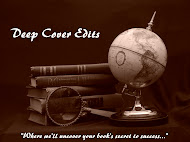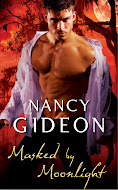 Chat about and Win an erotic sci-fi romance novel by Linda Mooney today at The Book Boost!
Chat about and Win an erotic sci-fi romance novel by Linda Mooney today at The Book Boost!Here's what she had to say...
Trying to Make a Silk Purse Out of a Sow’s Ear
As a teacher, I have the tendency to look at what someone is doing, and try to come up with alternative ways to either fix it or explain it. Which is why I will admit that I have been very much intrigued with the way New York is imploding.
Until recently, I had no idea that a new book released has only a six week shelf life. Gee, and I thought network television was bad with giving a new series only 2 or 3 weeks to hook an audience! Considering that an average reader goes to a brick-and-mortar bookstore about once every couple of weeks (I go less often because I usually stock up during my trip, to hold me over for a while), the chances of these new books being discovered are slim unless there’s a standing kiosk to show them off. Unless the author has a following, or the author/publisher does extensive advertising, very few people will know the book actually exists.
Here’s my take on the short shelf life. The majority of readers still go to bookstores. They’re still reading paper. And, as a fellow browser, there’s nothing more pleasant than spending a couple of hours meandering up and down the aisles, hoping to see a cover that catches my eye. The simple fact that the book is ON the bookshelf is a plus. With the use of Facebook and MySpace and Twitter, plus review sites and blogs, authors have a greater chance of getting their name and title out to the public than ever before.
New York is also notorious for wanting to put the print version out before the ebook version. This is opposite from ebook publishers, who release the ebook first, then the print. But I really don’t think of this as a bad thing. When my books are initially released, they stay on the publisher’s main website for at least a month, sometimes more, before they go to a third party site like Are, Fictionwise, and Amazon. That second release boosts my sales. NY prints are released as ebooks approximately six months after the print edition. And although I believe it would be better for both print and ebooks to be released simultaneously, having the ebooks released later to third party sites can only be a benefit, not a hindrance. Remember, in the past, the six week shelf life “was it”. That tiny little window of opportunity was all a NY author had to look forward to. The ebook market has added an extra venue and chance to sell. And with the advent of ereaders becoming as popular as ereader applications on phones, I predict ebooks will become the majority of sales over print books in less than ten years.
I’m not supporting NY with its “that’s the way we‘ve always done it" attitude. But I feel sympathetic for the authors who have managed to get NY published, and are now facing a very unstable future. What I’m trying to do is find some positive amid the negative.
A Note from the Book Boost: The future of publishing seems fickle these days. We just have to keep writing the best books we can and trying to get the word out about our books. That's all we can do. Thanks for sharing your thoughts with us today and please tell us more about YOUR book!
Blurb:
Bock Gammon was a freedom runner. A man with a space ship for hire. He had heard of Replacements and knew they existed, but he had never personally come across one. In fact, he found the whole idea repugnant growing a living being specifically for the purpose of harvesting his body parts. So did the governments in many of the galaxies who declared Replacements illegal.
Which was why he was stunned to discover his latest assignment was to bring a Replacement to one of the wealthiest men in the Chatta Dul system. If he hadn't so desperately needed the money, he wouldn't have accepted the job.
It didn't take long for Bock to realize that Rhea 41070 wasn't just one of a kind, she was also unlike any woman he had ever met. And the closer they got to the point of delivery, the more he knew he couldn't just walk away and leave her behind to be dissected. He had to somehow find a way to save her, despite the odds and hundreds of well armed men awaiting their return.
Warning! Contains mutilation, idol worship, twisted old men, blackmail, apathy for human life, black market medicine, a shootout, a taste of the good life, and more gold than you can shake a stick at.
Excerpt:
It was a miracle he wasn’t walking bowlegged when he finally made it back to the bridge. Bock tried to remain as nonchalant as possible, and hoped too much wouldn’t be said about his two days’ absence. That bubble soon burst.
“Since when have you been interested in the tantric love cycles of the Amoo Neelians?” Patt commented in a tone that was equal parts curious and sarcastic.
Damn the man. Of course he would be monitoring the on-board computer downloads.
Might as well get it over with.
Bock left the collar on the console and rotated his chair around to face his two shipmates, both of whom wore peeved expressions on their faces. Bock’s eyes involuntarily glanced down at the communications board. The Timian would also know Rhea had been in his cabin for the last day and a half.
Day and a half? Or two days? If she came to me night before last, spent the day and following night, would it count as—
“What’s going on between you and the payload?” Patt’s eyes narrowed. “We’re not talking anything serious here...are we?”
Bock sighed heavily and opened his mouth to answer when Via paled.
“Aw, shit, no, Bock#!”
“Sorry, guys.”
“Sorry? You’re screwing a Replacement, and all you can say is—”
Bock whirled on his engineer with a stone cold look on his face. “Whoa. Right off, let’s get a few things straight,” he almost growled. “You guys are my crew mates, but first and foremost I consider you to be my closest friends. And, frankly, I need your help right now, not your misguided interpretations. And, hell no, especially not your self-righteous smears!”
The Timian went pink with shock. “By the heavens...are you trying to tell us you’re in love with this Re-...her?”
“Do you actually think I planned to become emotionally involved with her?” Bock countered.
Via left her chair and approached him. “What are her feelings? Does she reciprocate? I mean, does she even know about love? Or affection? Because it’s damn clear she doesn’t have the foggiest idea what life is about!” Today the woman had opted to paint her face a stark white, with little orange flecks scattered over it. Bock likened the effect as looking like she was in the first stages of Bidgeon’s Disease. He stared into her worried gaze.
“We’ve been talking, and you’re right. She’s been telling me about her life, what she remembers. It’s a hell of a wake up call when you realize she didn’t exist eighty days ago, and woke up as a fully-formed woman. No infancy or childhood, no teen years, no memories exist for her prior to when she was hatched. That means the answer to your question is ‘no’. Rhea’s had no contact with love, or affection, or caring, for that matter. She knew nothing about physical contact of any kind. She’s been programmed for only one thing, and that’s to readily give herself to the rawlstone without question. It’s like she’s been treated like a fucking cyborg, without any thought given to her emotional well being.”
He reached over the console and fingered the collar. Vaguely, in the back of his mind, he wondered why he settled for the cold metal one he wore on the Bleak Tempest, when the padded one for the Demand was infinitely more comfortable. “I’m in this deep, people, and it’s not just the physical thing. It’s like...it’s...shit, I can’t begin to explain.” He rubbed a hand over his eyes. “Gods, she tries so hard to please me. It’s like she can’t get enough affection. Enough attention.”
“Maybe that’s why you’re so taken with her,” Patt suggested. “You’ve become her protector and her provider, and she idolizes you.”
“Maybe. But she’s an innocent. Everything I show her is new to her. Everything I tell her, she takes to heart. Shit. I’m going to have to break her heart when I leave her at Chatta Dul.” He turned back to his ship mates and mentally cursed himself to find his vision blurry with tears. “Is there any way, you think, that...” He couldn’t continue. Not when he already knew the answer.
The Timian shook his horned head. “I don’t understand, Bock. I’ve seen you with lots of women. All kinds of women. All temperaments, all shapes and sizes. Not once have I seen you look back over your shoulder once you started to walk away from them. Why this one? Why her?”
“Is it because you know you can’t have her?” Via spoke up.
“Maybe that’s it,” Patt suggested. “Maybe it’s because you know she’s off limits that makes you think you love her.”
“There’s no ‘think’ about it, dammit#! Haven’t you been listening? There’s this ripping feeling inside me, and it’s so fucking painful I can hardly stand it#!” Angrily, Bock fastened the collar around his neck. He continued in a slightly softer tone of voice. “Don’t you think I’ve argued with myself? Tried to make myself see reason? I’ve done everything I can think of to convince myself that all I had was a hard case of lust for this woman, and that few hours of good, healthy screwing would take care of that itch.” Sighing heavily, Bock shook his head.
“Somehow, she’s gotten under my skin. I don’t know if it’s because of her innocence, or her trusting nature, or those golden eyes of hers.”
Want More Linda?
Visit her website here: www.LindaMooney.com
Visit her Blog here: lindamooney.blogspot.com
Watch the book trailer for her book. Click here!
Pick up your copy of her book today! Click here!
Contest time:Visit her website here: www.LindaMooney.com
Visit her Blog here: lindamooney.blogspot.com
Watch the book trailer for her book. Click here!
Pick up your copy of her book today! Click here!
Leave a question or comment for Linda to be eligible to win an e-book copy of her new release. Winner selected in about a week and posted in the Recent Winners box on the right hand column of the blog. Check back to see if you've won and to claim your prize!

































.jpg)
